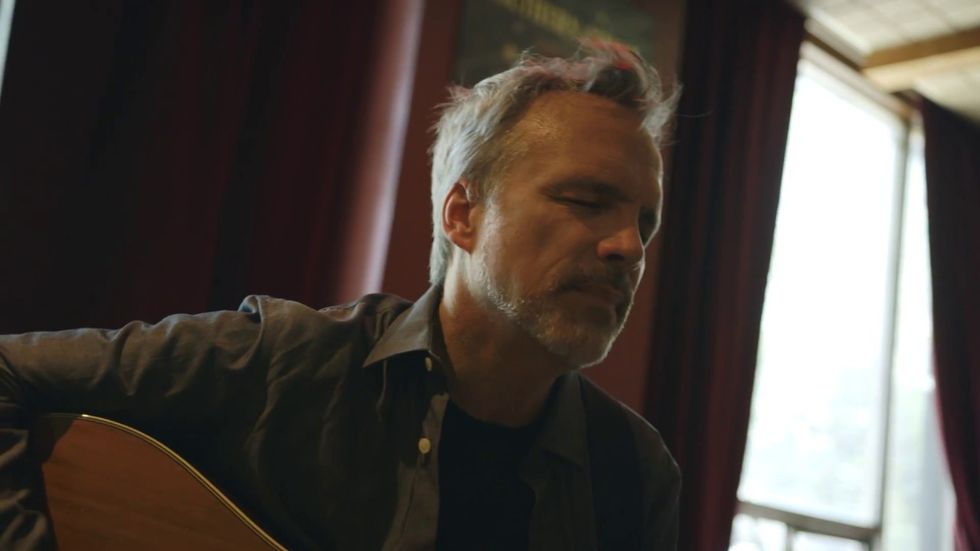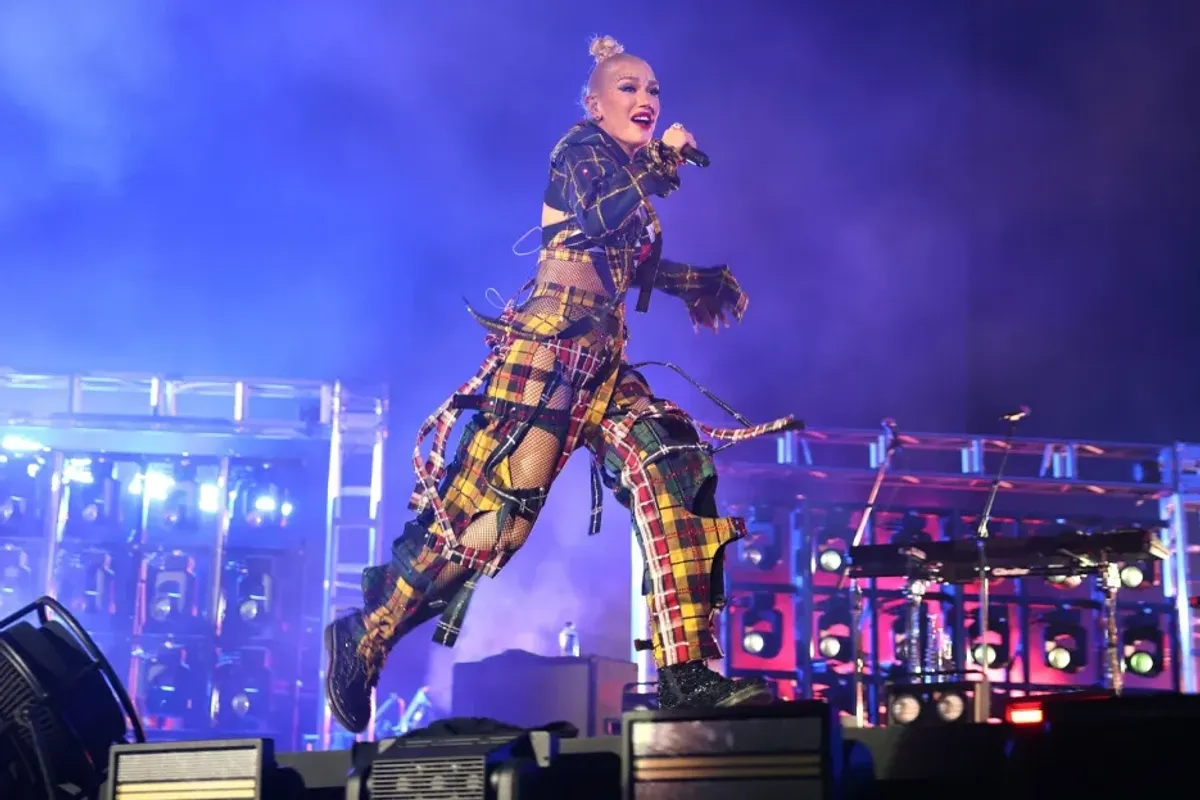Five Questions With… Kyp Harness
The prolific Toronto folk songsmith and author has just released a new album, Red Rover. Here he discusses its creation, his working relationship with Dale Morningstar, favourite lines on the record, and how he’s adapting to the pandemic.

By Jason Schneider
As a model of consistency for nearly 30 years, Kyp Harness was not about to let pandemic restrictions prevent him from making an album in 2020. And just under the wire, the Toronto singer/songwriter released a new collection, Red Rover, his sixteenth collection of rough-cut folk-rock gems.
Produced by and featuring his longtime collaborator Dale Morningstar on guitar and organ, the 14-song Red Rover overall feels like a live gathering at Morningstar’s Gas Station studio, with Harness also joined by pianist Tania Gill, bassist Victor Bateman, drummer Blake Howard, and trumpet player Rebecca Hennessy.
The results further add to Harness’ reputation for wry, Dylanesque observations about the current state of the world, but delivered with undeniable heart and soul, something he’s also demonstrated with the two acclaimed novels he’s published since 2016.
It’s an approach that Harness hasn’t veered much from since releasing his debut album, Nowhere Fast, in 1991. Back then he was part a unique community of Toronto songwriters that included Ron Sexsmith, Bob Snider and Bob Wiseman, whose approach foreshadowed today’s “alt-folk” scene. Harness was (and continues to be) its most prolific member, with some of his most notable catalogue entries being 1992’s God’s Footstool, 1998’s pop-flavoured Houdini In Reverse, and 2002’s The Floating World, the epic collaboration with Morningstar’s band The Dinner Is Ruined.
Red Rover is available now at kypharness.bandcamp.com.
How did Red Rover come together?
Some of the songs I had for a while, some were brand new, and as the plague was coming on it seemed like a good idea to record them before it got worse. I turned to my friend and brother Dale Morningstar who's worked on a lot of my recordings, and knows how to capture spontaneity and life and get the tunes down with all the stems and seeds intact. Tania Gill, the pianist, I've been working with for awhile, and then I thought of her husband Victor Bateman, an ace bass player, in order to keep the “bubble” small. Then there is Blake Howard, a real feeling and listening drummer who I worked with on The Floating World, and Dale himself with his guitar pyrotechnics. They all turned out to be the best ones to grab onto the songs and make them sing.
What was it like for you recording during lockdown restrictions?
We all kept our distance from each other out on Dale's studio on Toronto Island, but were close enough to play and feel each other musically. Having the plague hover over us maybe heightened our focus that much more. It often felt like we wanted to jump into the immediacy and rip it open, even though it felt like something was hovering in the room at all times.
What songs on the record have particular significance for you and why?
I’m really proud of all 14 of these. I think specific lines stand out more to me, like one in the song Earthworm Melody—“It's possible to become quite drunk on all these big ideas / But what's the point of walking on water if you don't know where the sea is?” And a line from Uphill Climb—“You can't remember anything that doesn't make you fall / Into a whirlpool of dread and rage and nostalgia for it all.” Like a lot of my stuff, they are songs of love and anger.
How have you adapted to engaging with your audience over the past few months?
I miss people I play with and I miss people I play to. I've put some video performances online but it's not the same. In many ways, this recording gave a chance for me and my friends to play together that Covid prevented us otherwise from doing, and hopefully, people can hear we're giving it our all to communicate the thrill and life of the music.
What's your mindset looking ahead to next year and the prospect of hopefully playing live?
It's a fool's errand to try and predict anything, and I’m sure all musicians feel the same right now. As I said, making Red Rover was the next best thing to playing live for us, so hopefully, it is for other folks too.

















